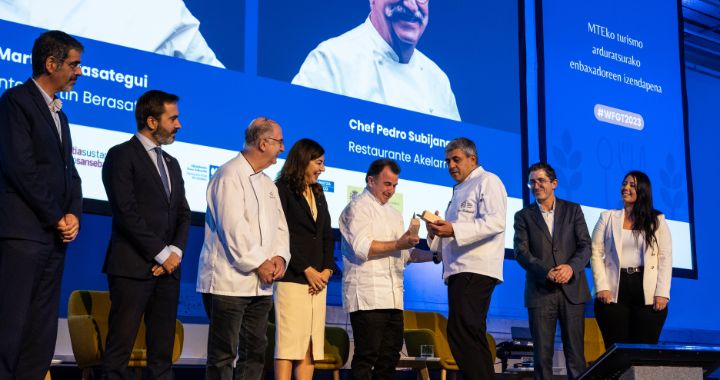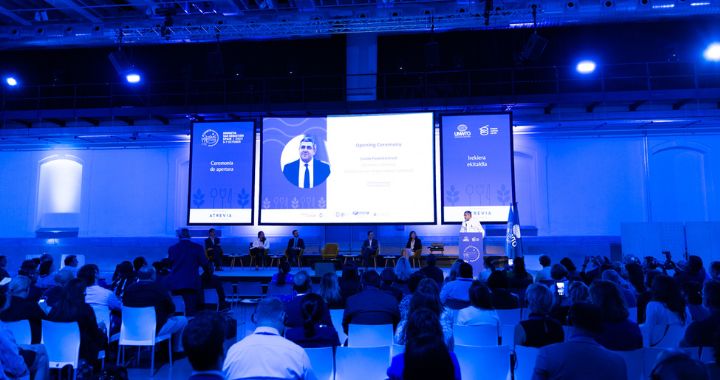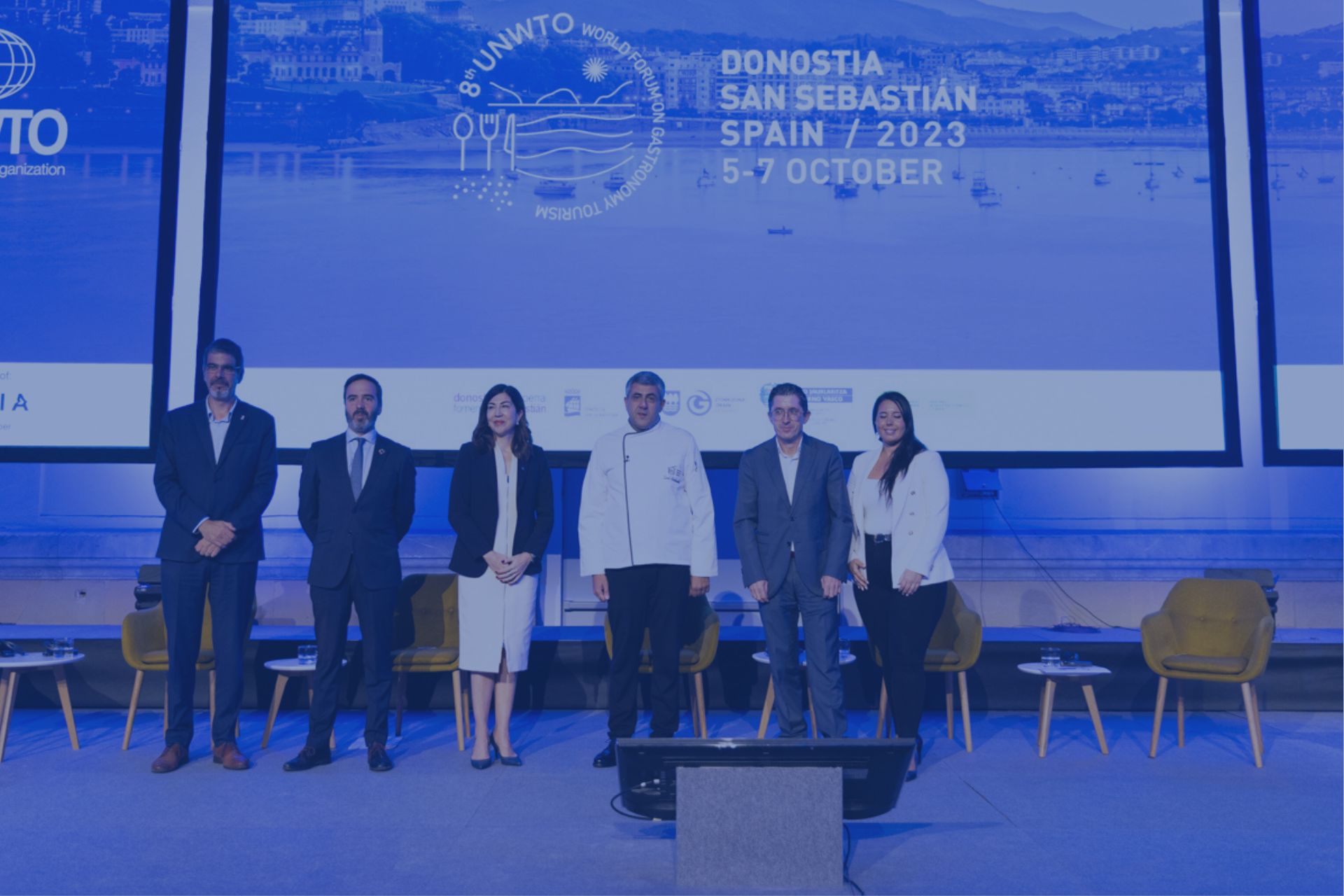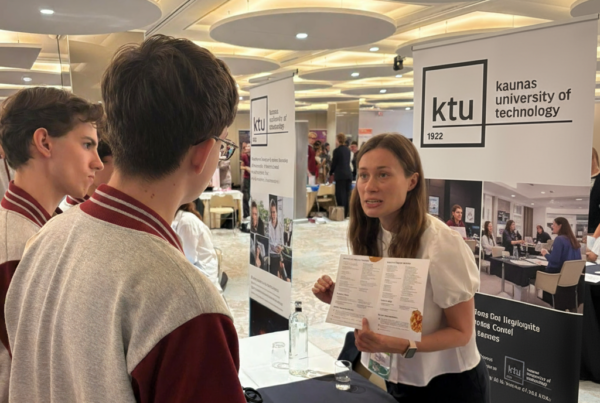The World Tourism Organization (UNWTO) and its Affiliate Member, the Basque Culinary Center (BCC), organised the 8th UNWTO World Forum on Gastronomic Tourism. The event took place from 5 to 7 October 2023 in Donostia-San Sebastián (Spain) and its theme was “Gastronomic Tourism: Back to the Roots”. This theme recalls the importance of establishing and maintaining links with culture, history, heritage and the local community.
This was the 4th edition held in this city, home to the BCC, which has been promoting the initiative since 2015 in conjunction with the UNWTO.
The organisation of this event opted for beamian services for registration, inscription and check-in of participants, access control to conference rooms and exploratory visits to the city (excursions). It also used digital services, in particular the beamian Web APP, to incorporate virtual stands.
The event had around 500 participants, 10 exhibitors and the official languages were English and Spanish. It also had the Euskera language for the opening ceremony.
beamian’s multilingual event platform supported the event’s 2 official languages, including Euskera, which was spoken at the opening session.
The main aim of this Forum was to exchange knowledge and experiences between tourism and gastronomy professionals, and to highlight the importance of gastronomy in the development of tourist destinations. Gastronomy reinforces the preservation of each destination’s local identity, values local producers and products, and promotes greater sustainability in the development of tourist destinations. Alongside this message, it was also emphasised that technology is an indispensable tool in creating knowledge for the transformation and evolution of gastronomy and tourism.

Programme
The programme featured technical sessions, round tables, thematic presentations and technical visits (excursions), and had a strong and important presence from Africa. The forum proved to be an opportunity to deepen our knowledge of African gastronomy and its links to agriculture and cultural heritage.
The event was divided into 5 main thematic sessions, two sessions on the first day of the event and three sessions on the second day.
The first session aimed to empower producers to grow and show the importance of having a fairer and more sustainable food system. The second session aimed to offer guidance to producers in order to take advantage of geographical indications, gastronomic itineraries and intellectual property for the development of tourism and the local economy.
On the second day, in the first session, several start-ups presented innovative solutions for tourism and gastronomy, addressing various challenges in their geographical areas. In the second session, three projects were presented with solutions for reducing food waste. In the third and final session, a guide on good practices to adopt in the development of gastronomic tourism created by the UNWTO and BCC was presented. The speakers emphasised the importance of gastronomic diversity in expressing a destination’s identity, attracting tourists, combating depopulation and creating job opportunities for young people.

Conclusions
It was possible to draw some conclusions from the discussions and sessions that took place throughout the event:
- Gastronomic tourism is a booming industry that needs development strategies that highlight the uniqueness of each tourist destination;
- Food waste is one of the major barriers to gastronomic sustainability;
- More outdoor activities are essential to attract more tourists to rural areas;
- Agro-tourism has great potential to increase the economic impact of tourism in rural areas;
- The preservation of culinary traditions as a bridge between generations is essential to maintain the exclusivity of a destination and combat the loss of identity;
- Education is crucial for the development and evolution of a more sustainable and authentic gastronomic tourism. This means educating producers with the resources and knowledge to integrate them into the tourism ecosystem and sensitising consumers about food waste and reducing the carbon footprint.
It was therefore a day of exchanging knowledge and learning about the challenges of gastronomic tourism and the points that can be improved to develop more sustainable tourism and preserve the gastronomic diversity and uniqueness of each tourist destination.
This forum centred on the links between tourism, gastronomy and producers, in order to promote rural development, preserve cultural and natural heritage, and embrace innovation and digital technologies to improve the tourist experience. This is because tourism is key to diversifying producers’ sources of income and revitalising local products and gastronomy as cultural heritage.
By enabling knowledge sharing and networking, the main role of this event was to gain a more detailed understanding of the various advantages of combining tourism, gastronomy, local producers and products, and technological solutions.
beamian: Leading event management platform
The beamian event management platform was used to manage the World Gastronomy Tourism Forum. beamian made it easy to register participants, manage sessions and organise side events. The platform also provided real-time information on participants’ attendance and involvement.
How beamian helped manage the event:
Registration, enrolment and check-in of participants;
Access control;
Creation of virtual stands with the Web APP;
Support for the 3 languages spoken at the event.








